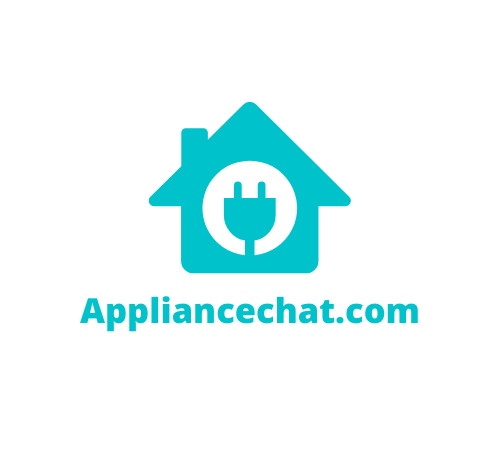A malfunctioning mini fridge is the most frustrating thing ever.
There’s nothing worse than going to get your favourite drink only to discover it’s warm.
Having said that, we are confident that we will be able to identify your cooling issues and possibly even restore your Hisense mini refrigerator’s cooling.
In this article, we’ll help answer the most common cooling problems with your Hisense mini fridge.
Hisense Mini Fridge Not Cooling: 7 Common Problems (with solutions)
Based on our research and experience, below are the most common reasons why your Hisense mini fridge is not cooling.
- Fridge not plugged in
- Door Not Shutting Properly
- Problems with Fridge temperature
- Dirty Condenser Coils
- Faulty Condenser Fan
- Evaporator Fan
- Start Relay
For further detailed troubleshooting to get your Hisense mini fridge back cooling below
Ready, let’s jump in!
1. Check Hisense Fridge is Plugged In
Although it may appear obvious, the first step is to ensure that your Hisense mini refrigerator is properly plugged in.
If the appliance is not properly plugged in, remove the plug from the socket and re-insert it.
Remove the plug and try plugging another item into the same socket if it is properly inserted.
If the newly plugged-in item fails to function, try resetting the circuit breaker for that outlet.
If the outlet is still not working, call an electrician.
At the very least, you have a refrigerator that is cooling.
If the outlet is not the problem, move to the next step below
2. Check the Hisense Fridge Door Shuts Properly
Fridge doors that do not close properly and damaged or worn-out seals are common causes of refrigerators not cooling.
Check to ensure that the door is properly closed. Failure to do so will result in cold air leaking out.
Check the door seals to ensure they are not torn, weathered, or dirty.
Dirty seals can cause gaps large enough to allow warm air to enter, affecting cooling.
If you notice dirty seals or frost build-up around the gasket, clean them right away and give your refrigerator up to 24 hours to return to normal temperature.
It is best to call a technician if the seals need to be replaced or the door is faulty.
3. Reduce Hisense Fridge Temperature
The fridge’s temperature may need to be reduced, especially during warmer months or if the fridge is packed with food and drinks
Reduce the temperature of your Hisense mini refrigerator.
The ideal refrigerator temperature is 3°C (37°F) and the freezer temperature is -18°C (0°F).
If your refrigerator is in direct sunlight or close to a heat source, consider relocating it if possible.
While we’re on the subject of fridge location, make sure there’s an inch of clearance between the fridge and the back of the wall for proper operation.
4. Check Condenser Coils
Fortunately, inspecting and, if necessary, cleaning the condenser coils is simple.
Here’s what you should do:
At the back of your Hisense mini-fridge, there are a set of condenser coils that help keep your mini-fridge cool.
When they become covered in dust or frost, they can struggle to cool your fridge at the desired temperature.
Where is it? that Condenser coils are located at the bottom or on the back of the refrigerator
Inspecting the condenser coils is easy, just follow the steps below
Possible Solution
- Turn off the power to your mini fridge.
- Pull it away from the wall to gain access to the back.
- Locate the condenser coils and inspect them for frost or dirt.
- If the coils are covered in frost, turn off your mini-fridge and let them defrost before cleaning them. If they are dusty, wipe them down with a damp cloth.
- Restart your Hisense mini fridge once it is clean.
Check to see if the fridge is cooling properly after a few hours.
If not cooling move to the next reason
5. Faulty Condenser Fan
If cleaning the coils did not restore cooling to your Hisense mini fridge, the next component to inspect is the condenser fan, which can occasionally stop working properly if it becomes broken or covered in ice.
The primary function of this fan is to keep the condenser coils cool, so if it fails, your coils will become too hot, and your Hisense mini fridge will not be able to cool down.
Where is it? The condenser fan is located in the bottom cabinet by the compressor and the condenser coils. It is important to note that refrigerators with condenser coils on the back will not have a fan (check your user manual).
Possible Solution
- Turn off the power to your mini fridge.
- In your mini fridge, look for the condenser fan.
- Remove any coverings that are on it.
- Next, try manually turning the fan around.
- If the fan cannot move without being obstructed, try to remove the object obstructing it first, and if that fails, the fan may need to be replaced.
- If the fan is not obstructed, you must test the fan motor with a multimeter to ensure continuity.
- Replace the fan if it is broken. Reattach the fan cover and move on to the next reason if everything is working properly.
- Check to see if your Hisense mini fridge can now properly cool down after installing a new fan. If not, continue to
6. Evaporator Fan
If your Hisense mini fridge has an evaporator fan (check your user manual), it could be broken and causing your mini fridge to overheat.
This fan circulates air from the small freezer compartment (depending on if your model has a freezer) into the main body of the mini refrigerator to keep it cool. If it fails, your mini refrigerator will stop working.
Where is it? Behind the freezer wall is the evaporator fan. Before you can access your freezer, you must empty it of its contents and shelving.
Possible Solution
If the fan does not appear to be working, the fan motor may need to be replaced.
Locate the fan and remove the mounting clip, fan blade, and wire harness after removing the evaporator panel in the freezer’s back.
Install the new motor into the housing and connect it to the wire harness.
Replace the mounting clip after completely inserting the fan blades. Replace the evaporator panel and the shelving.
7. Start Relay
The start relay is a critical component in your Hisense mini fridge that allows the compressor to function.
If it fails, your Hisense mini fridge will be unable to cool to the proper temperature.
Where is it? Remove the lower back panel from your fridge to access the relay
Possible Solution
- Check that your mini-power fridge’s is still turned off.
- Next Find the start relay (check your user manual if required).
- Noting, the start relay is housed in the same compartment as the compressor and is connected to the main device at the back.
- Carefully disconnect the wires from the relay.
The simplest and most effective way to determine whether or not the Start Relay is functioning properly is to perform a physical test by shaking it.
If you hear rattling on the inside of the start relay, the part is defective and must be replaced.
If it isn’t rattling and appears to be in good working order, you may have a problem with the compressor itself.
Repairing a compressor is far more serious and costly.
Life Expectancy of a Hisense Mini Fridge
The life expectancy of a Hisense mini fridge is somewhere between 6-13 years
The general rule of thumb is a budget refrigerator should last about six years.
A mid-range refrigerator should last about nine years, while a high-end refrigerator can last up to 13 years.
Faulty thermostats and damaged door seals are repairable and worn seals can help restore the cooling performance of an older refrigerator.
If your refrigerator is more than six years old and has a major fault (such as compressor failure), consider replacing it because a new one will be more efficient and have lower operating costs.
Hisense Mini Fridges Any Good?
Yes, Hisense mini fridges are very good. Hisense refrigerators are reliable, spacious, look striking and depending on the model, they might have a freezer section. They are also reasonably priced.
Compared to its rivals, the Hisense mini fridge is a little bigger.
The freezer section is substantial, and it runs almost silently.
So, yes, it’s safe to say Hisense is a good mini fridge that will suit any garage or dorm room.
Pros and Cons of Hisense Mini Fridge
Below are the pros and cons of Hisense mini fridge
Pros
- Quiet
- Adjustable shelving
- Affordable
- Great design
Cons
- No freezer section
- No internal light
Conclusion
If your Hisense mini fridge isn’t cooling properly, inspect the door gaskets to ensure they’re providing a good seal. Then, ensure that the refrigerator’s compressor and thermostat are both operational.
This concludes the article, and we hope you learned everything there is to know about troubleshooting your Hisense mini refrigerator.
Remember that machines break down, and no matter how frustrating it is to discover that your Hisense mini fridge is broken, it is always best to remain calm.
If your cooling problems continue after following the steps in this article, it is best to contact a technician.
Related Articles
- Hisense Fridge Issues: 7 Common Problems (with solutions)
- Hisense Dishwasher Problems: 7 Common Issues (with solutions)
- Hisense Fridge Not Cooling: 7 Common Reasons (with solutions)
References
- https://www.amazon.com/
- Image by wayhomestudio on Freepik

